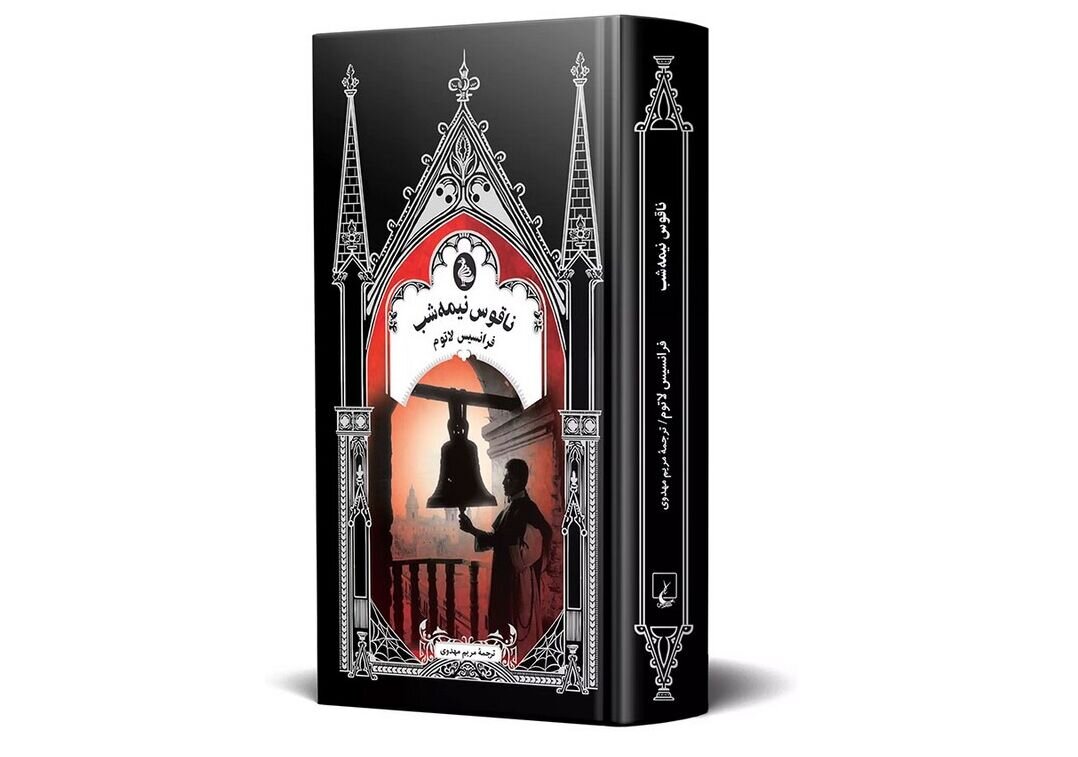Francis Lathom’s gothic novel “The Midnight Bell” at Iranian bookstores
TEHRAN-The Persian translation of the gothic novel “The Midnight Bell” written by Francis Lathom has been released in the Iranian book market. Maryam Mahdavi has translated the book and Qoqnoos Publishing House has brought it out in 346 pages, IRNA reported. The book was first published anonymously in 1798 in London and has, on occasion,


TEHRAN-The Persian translation of the gothic novel “The Midnight Bell” written by Francis Lathom has been released in the Iranian book market.
Maryam Mahdavi has translated the book and Qoqnoos Publishing House has brought it out in 346 pages, IRNA reported.
The book was first published anonymously in 1798 in London and has, on occasion, been wrongly attributed to George Walker. It was one of the seven “horrid novels” lampooned by Jane Austen in her novel “Northanger Abbey”.
Subtitled “A German Story, Founded on Incidents in Real Life,” it concerns the quest of the hero, Alphonsus Cohenburg, to regain his estates and stolen identity after his parents are murdered by his villainous uncle. The young man becomes a soldier, then a miner, before marrying his true love Lauretta, only to see her kidnapped by bandits.
The last third of the book is set in the quintessentially gothic Cohenburg castle and features tales of ghostly apparitions, who turn out to be diabolical Roman Catholic priests, another common gothic trope. The midnight bell of the title calls the villainous monks to their dark meeting place.
One of the greatest of all Gothic novels, “The Midnight Bell” features a blend of fast-paced action and spine-tingling suspense, pervaded throughout by a tone of profound melancholy.
Suspicion is a significant theme in “The Midnight Bell,” as Count Cohenburg’s suspicion of his wife’s infidelity is the direct cause of the murder that starts the book’s plot. Additionally, the novel ends with Alphonsus warning his children of the dangers of suspicion.
Lathom explores ideas of inheritance, beyond any references to material wealth, as “The Midnight Bell” is concerned with children’s inheritance of the sins of their parents.
Francis Lathom (1774-1832) was a British gothic novelist and playwright. In 1795, he published his first novel, “The Castle of Ollada,” a Gothic romance indebted to Ann Radcliffe’s “The Mysteries of Udolpho” (1794) and “Walpole’s The Castle of Otranto” (1764).
Lathom would go on to publish many more Gothic novels, all with sensational titles such as “Astonishment!!!,” “The Fatal Vow,” “The Unknown,” and “The Impenetrable Secret, Find it Out!”.
But Lathom was not only a Gothic novelist: about half his works are works of contemporary satire or attempts at fiction in the mode of Walter Scott.
SS/SAB
